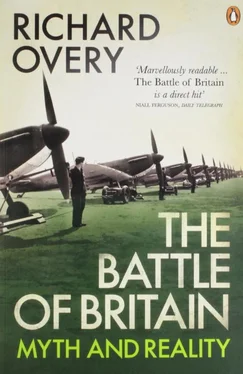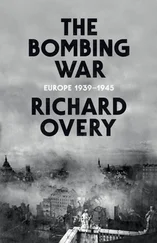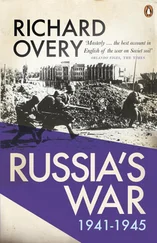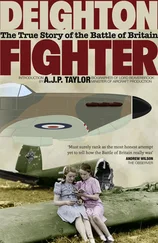The assault on Fighter Command posed greater problems with the British supply of pilots. During August the casualty rate rose to 22 per cent of pilot strength, a higher rate of loss than could be made good from the Operational Training Units, which by August were turning out 320 pilots a month. A system of reinforcement was developed which gave 11 Group access to the pilots in other fighter groups. So-called ‘A’ squadrons were kept at full strength (20 trained pilots) and all assigned to Park’s group; ‘B’ squadrons were kept at near full strength and assigned to other key group sectors; ‘C’ squadrons were set up in 12 and 13 Groups, composed of only five or six trained pilots, whose job it was to prepare the intake of operational trainees for combat in the south-east. 21The rotation system allowed some respite to the hard-pressed front-line pilots, though it did throw into the heart of the battle less experienced crew, whose survival rates and kill ratios were lower.
These men were Churchill’s ‘few’. In a speech to Parliament on 20 August he repeated a sentence that he had been heard to mutter to himself a few days earlier as he returned by car from Park’s headquarters at Uxbridge: ‘Never in the field of human conflict was so much owed by so many to so few.’ For all its subsequent reputation, the speech had, according to one of Churchill’s private secretaries, ‘less oratory than usual’. For much of the time ‘the speech seemed to drag’ in front of an audience made languid in the heat of an unaccustomed August sitting. 22Churchill devoted only a small part of his speech to the air battle, which focused on problems in the African war against Italy; nor did he single out Britain’s fighter pilots for praise. Fighter Command got six lines, but Bomber Command got twenty-one: ‘On no part of the Royal Air Force,’ Churchill continued, ‘does the weight of the war fall more heavily than on the daylight bombers who will play an invaluable part in the case of invasion…’ 23
On the Fighter Command stations Churchill’s remark was soon turned into a joke about mess bills. The journalists who dared the trip to these southern airfields were rewarded with scenes that have remained etched in the popular memory of the battle. ‘You knew,’ wrote Virginia Cowles, looking back a year later, ‘the fate of civilization was being decided fifteen thousand feet above your head in a world of sun, wind and sky.’ Aircraft could be seen ‘falling earthwards, a mass of flames, leaving as their last testament a smudge of black against the sky’. The pilots appeared like overgrown children, ‘little boys with blonde hair and pink cheeks, who looked as though they ought to be in school’. 24German crewmen evoked the same sentiments. When the MP Harold Nicolson saw two German Air Force prisoners at Tonbridge Station guarded by three soldiers with fixed bayonets, he thought them ‘tiny little boys’. The other passengers treated them with a shy respect. 25
The toll on the men who flew the aircraft was severe. The persistent, daily combat was physically draining and nerve-racking. Captured German prisoners at the end of August were said to show signs of ‘nervous strain and cracking morale’, and ‘nervous exhaustion’. In his memoirs the German fighter commander Adolf Galland described the gradual demoralization of the German fighter force from the strain on minds and limbs compounded with the lack of any clear sign of operational success. 26They at least did not suffer the indignity of being machine-gunned as they parachuted to earth. British fighter pilots were regarded as combatants as they floated down because they could be back in a cockpit within hours; German pilots could only become prisoners-of-war. Dowding in his ‘Despatch’ deplored the practice, but confirmed that it accorded, in his view, with the laws of war. 27
The strain on Fighter Command crew was evident to their commanders. In August, Dowding ordered a period of twenty-four hours’ rest for each pilot every week (which explained at least in part the gap between numbers available and the numbers actually flying that so enraged Churchill). In 11 Group efforts were made to repair the damage suffered by men swept round on a carousel of noise, danger and fear. Pilots were sent away to distant billets to get a night of uninterrupted sleep. More games and physical exercises were introduced. The Treasury, after much argument, finally agreed that the cost of electric lighting for airfield squash courts would be met from the public purse on the grounds, robustly argued by the Air Ministry, that a good game of squash produced a better pilot. Less energetic games were denied the public subsidy, and pilots had to pay for the lights in billiard halls out of their own pockets. Park thoughtfully arranged for airfields to be visited by string bands ‘in order to remove some of the drabness of the present war’. 28
By the beginning of September the toll was telling on both sides. Park reported to Dowding that, between 28 August and 5 September, the cumulative impact of the pounding received by airfields had had ‘a serious effect on the fighting efficiency of the fighter squadrons’, which could be met only by improvisation. Yet the RAF withstood the assault far better than any other air force attacked by German aircraft. The system of reinforcement was not ideal, but it provided an adequate pool of reserves, while the supply of aircraft was maintained steadily. The three airfields temporarily put out of commission had not been intended to stand in the defensive front line. They were used for the battle in France, but their proximity to the coast made them less satisfactory as defensive stations. Dowding had under his command a network of stations and satellite fields which would have kept a substantial force in contact with the attacking formations even had the forward airfields been put permanently out of action. Only a carefully directed scheme of sabotage could have disrupted the network of communications, which was limited as much by technical snags and human error as it was by the work of the enemy. Dowding commented on Park’s report by pointing out that his Group had survived 40 attacks on 13 airfields, and had briefly lost the use of only three. 29The loss rate of men and machines was as high in September when the attacks on airfields were abandoned.
At the height of this dour campaign of attrition came an intervention from Hitler which is always said to have saved Fighter Command and turned the battle. In a speech on 4 September Hitler announced that the German Air Force was to switch the main weight of attack on to British cities. London was singled out as the chief target and from 7 September, when the first mass daylight raid was launched on the capital, the German effort was concentrated on bombing the city by day and night. The respite afforded Fighter Command, so it is argued, allowed it to revive and to inflict insupportable losses on the German air fleets. The reason usually given for the sharp change in air strategy is the attack on Berlin by Bomber Command on the night of 25/26 August. Hitler was said to be so incensed by violation of the German capital that he suspended the attack on the RAF in order to unleash annihilating retaliatory blows against London; vengeance attacks made little strategic sense, and German strategy thereafter was doomed to failure.
The issues that led to the third phase of the battle were more complex than this. The central problem for Hitler and the military leadership was still to find a way to bring Britain quickly to the point where invasion could be carried out with a reasonable prospect of success. Barring invasion, there remained the hope that air attacks would prove so unendurable that the British government would at last bow to public pressure and accept the peace refused earlier in the summer. The disappointing results of the early wave of attacks in mid-August had already prompted Hitler to take stock. ‘The collapse of England in the year 1940,’ he told staff at his headquarters on 20 August, ‘is under present circumstances no longer to be reckoned on.’ 30Nevertheless he did not cancel Sealion, nor rein back the air assault, in the hope that the situation might suddenly improve. Instead the air force moved on to the next stage of the campaign planned in July.
Читать дальше












